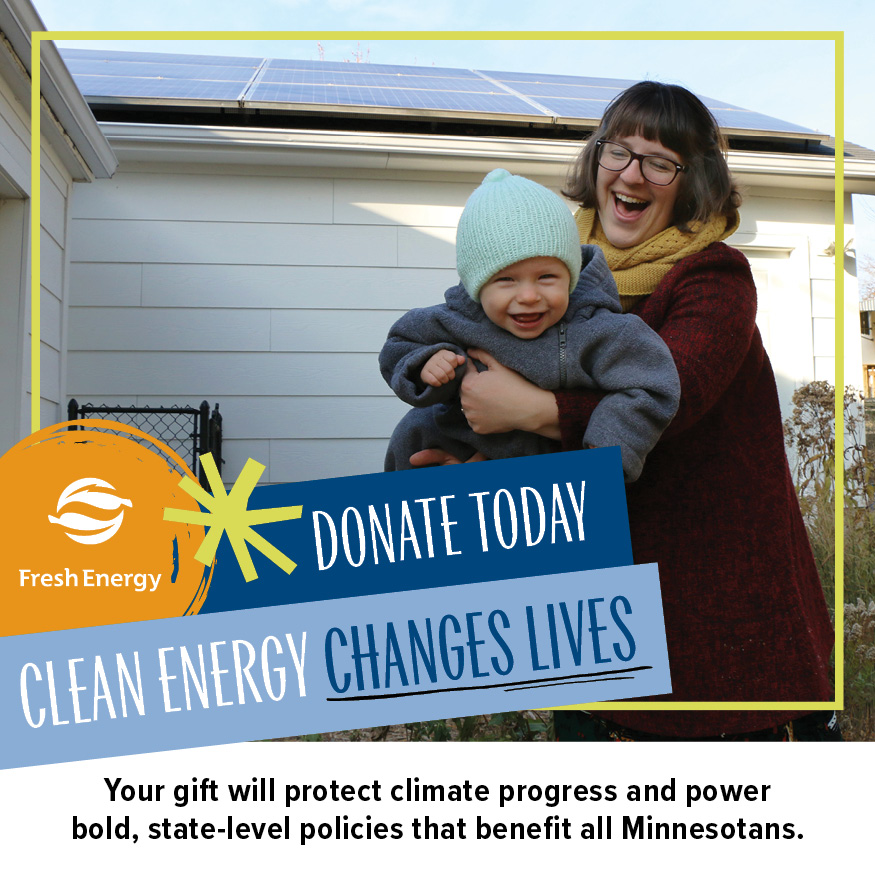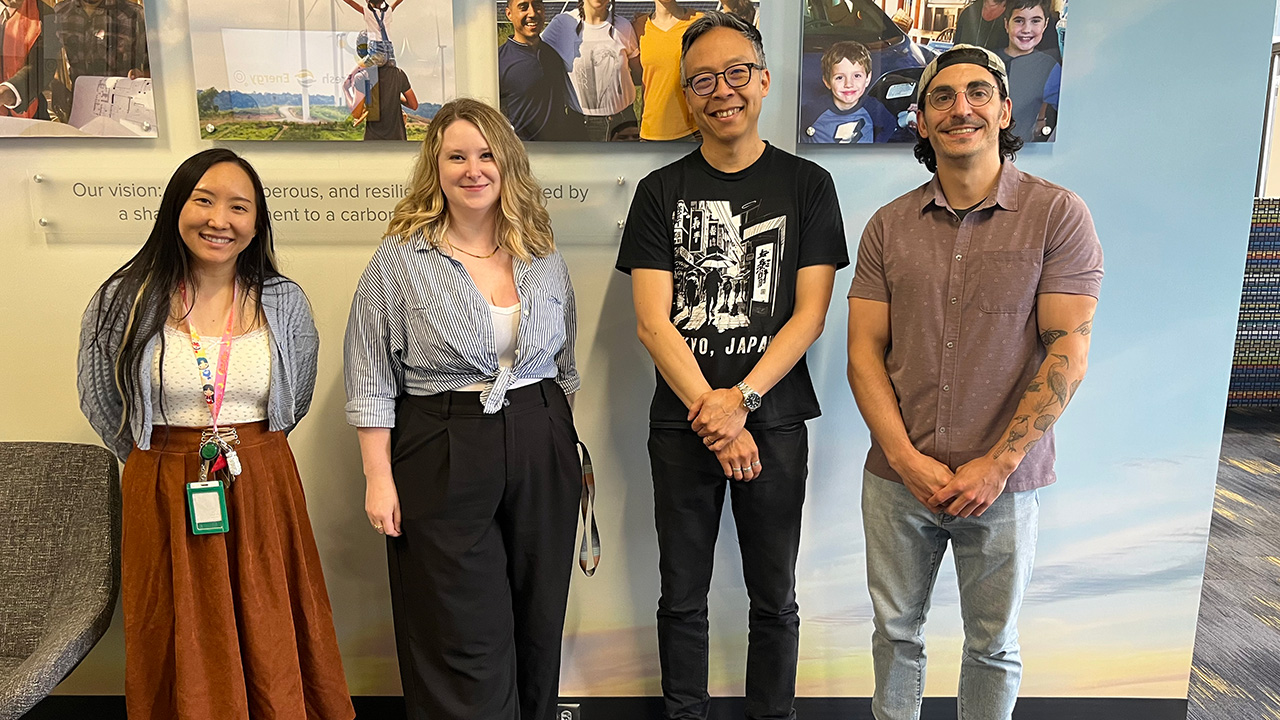
As a team of technical experts, attorneys, and advocates, Fresh Energy has been a key player in speeding Minnesota’s transition to a clean energy economy for over 30 years. The growth of Fresh Energy as an organization and everyone on the Fresh Energy team would not have been possible without our operations experts in the Organizational Health department that ensures Fresh Energy’s community space and community culture thrive. This is only possible when we listen to and involve all Fresh Energy employees in co-creating policies that are relevant to people, their families, and needs across the lifespan. Read on to meet Mat, Liz, Steve, and Annie!
Exposure to the realities of the climate crisis
Led by Executive Lead, Organizational Health Mat Larson Krisetya and supported by Community Associate, People Operations Liz Hatfield; Senior Business Operations Associate Steve Merino, and Senior Information Management Associate Annie Moua, our Organizational Health team has had quite the role to fill over the past few years. But what led Mat, Liz, Steve, and Annie to work in climate and clean energy advocacy in the first place?
Meet Steve Merino, senior business operations associate
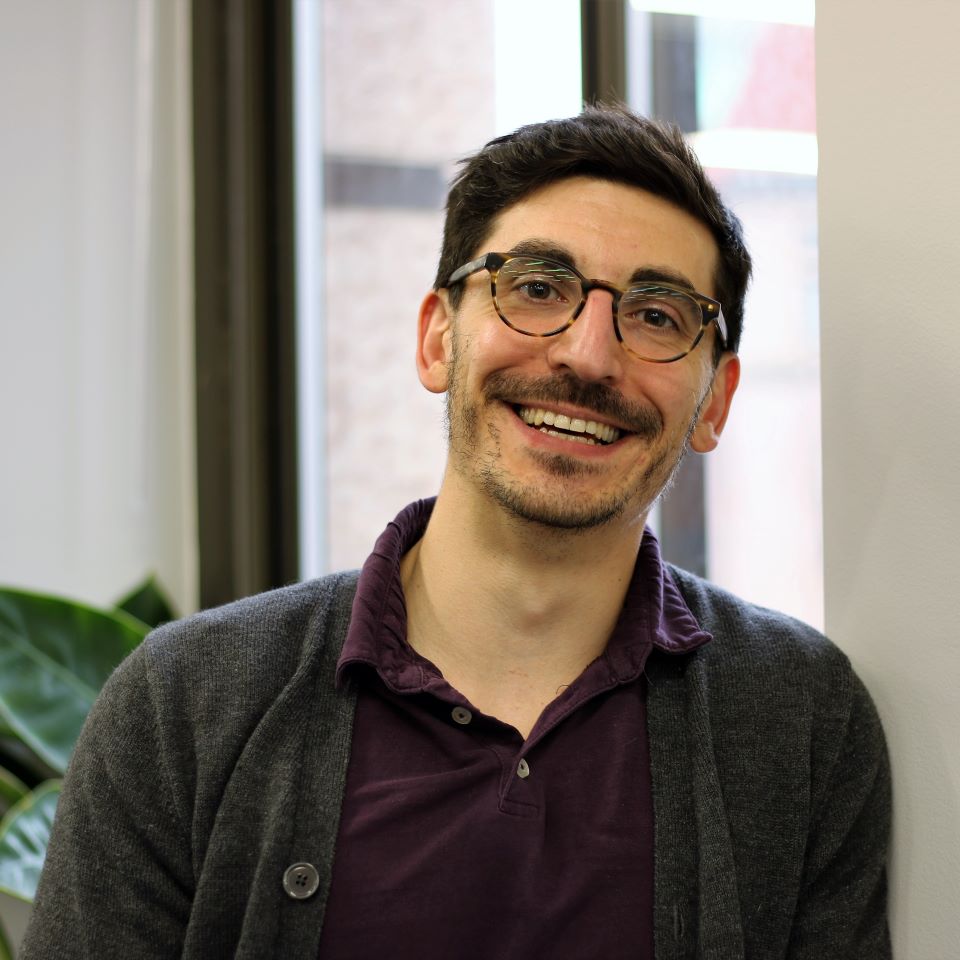
“As a kid, I usually went camping a couple times a month when the weather cooperated,” says Steve. “We’d do longer trips over the summer, and I remember there was a time I went to the Boundary Waters when I was 14 or 15. We canoed past this area that had been burned recently, and it was so striking to me to see that, in this really secluded area—to have a portion of that just be completely decimated.” Though he reflects that he knew these fires and other events at least partially went hand-in-hand with the organic pace of nature, Steve says it was still jarring.
He adds, “That moment also highlighted the fact that there are things going on in these sacred spaces, like mining. So that’s when I started thinking about why things like mining and fires happen, who’s involved, who might be benefiting from them, who’s profiting from them. And now those things are always on my mind. There are things we are trying to do that are going to benefit society, but these things also often use up critical natural resources and play a role in exploiting communities.”
Meet Liz Hatfield, community associate, people operations
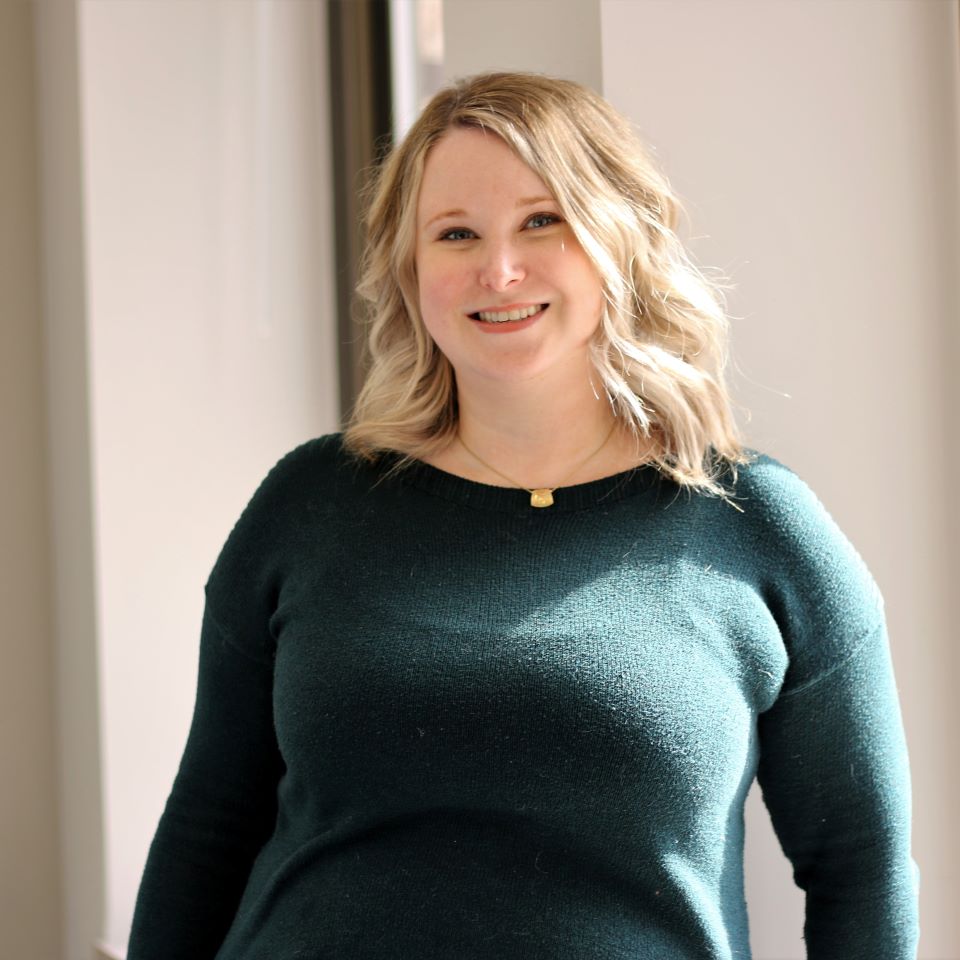
Liz Hatfield notes that, for her, an awareness of climate change and solutions has always been a thing. “There wasn’t really an “aha!” moment for me,” she muses. “Growing up with pretty progressive parents and family members, it was something that was always discussed—the impact and reality of climate change and reducing our energy footprint.” She smiles and laughs a bit when adding, “I remember that composting came to Minneapolis before it was available where my parents live, and my dad was extremely jealous and was asking around for how he could drop off his organic waste to be part of those efforts.”
In terms of her own career trajectory too, Liz says she’s always worked in nonprofits: “My professional roles have all revolved around benefiting a community or a program. And, personally, I really love nature, and I’m a huge animal lover. To see how climate change has affected both ‘people places’ and natural environments, especially animal habitats, is very disheartening to me. I was always taught to use my education and skills to be part of something I’m passionate about, to work for something that also makes me happy. I always want to be part of the solution to climate change, and more broadly to make my community and the world, in whatever small way, a better place.”
Meet Annie Moua, senior information management associate
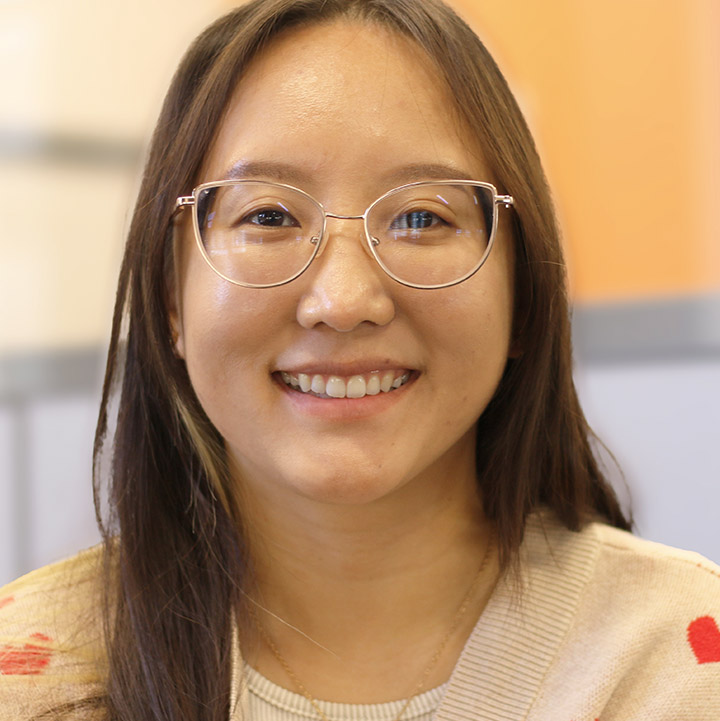
When asked how she first came to be interested in clean energy and climate work, Annie says “It was a gradual kind of journey for me.” In her family, “Survival wasn’t being energy efficient, it was about putting food on the table, clothes on your children, and going to work and coming back.”
As she was exposed to different people working in the climate and energy efficiency industry at the Kitty Anderson Youth Science Center, her perspective grew: “I believe that if you don’t see yourself reflected in these fields, you will not be able to imagine realities beyond what you’re experiencing at home.” As she began noticing more people in her community being affected by climate and clean energy policies on a day-to-day basis, she started to realize just how much policy affects people—and became more interested in getting involved.
Annie distinctly remembers the first time she recognized how policy affected her personal life. “During my time in school, you had to pay for lunch. If you didn’t have money, your food would be thrown away in front of you,” says Annie. “Food justice really ties to climate, and simply having a policy like ‘every child can eat’ makes a big difference for students. As a child I felt ashamed my food was thrown away. It was traumatic. When Minnesota passed [universal school lunches into law], I had an “aha!” moment. It’s so systemic. It makes you think more about policy when your daily life is affected by it.”
Meet Mat Larson Krisetya, executive lead, organizational health
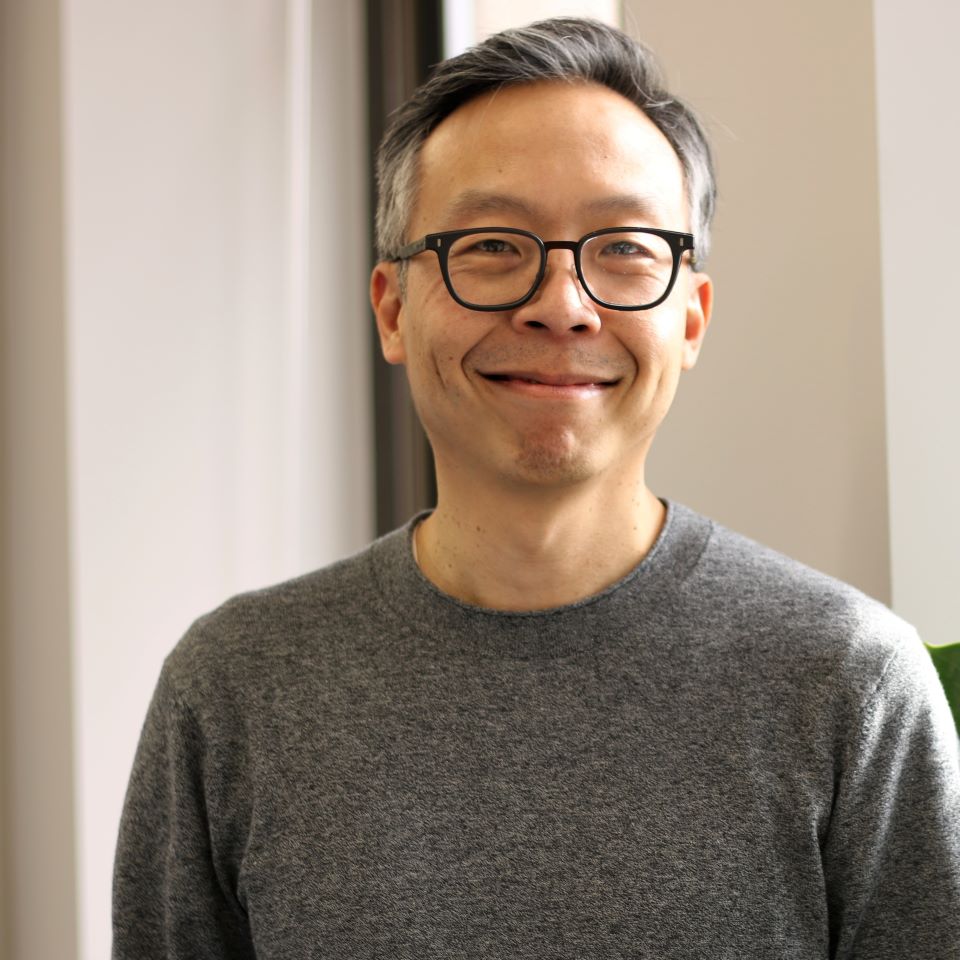
Mat Larson Krisetya admits that his childhood was a key factor in his own approach to the world around him, particularly in how he views climate change and climate solutions efforts. “I grew up in a number of different places, more specifically in Asia,” Mat says. “And, in Asia, natural disasters are quite commonplace, to the point where people know that these disasters happen because of human causes and kind of just accept them because it’s not unexpected that these things are happening.”
When he started his career, Mat found himself in the global agricultural industry. “There I was in rural Jamaica working in agriculture with small holder farmers, and it was those farmers who told me that many of the impacts of climate change on the local environment meant that they had to make do with less water than they needed, and they had to change their systems of farming to ensure they could still operate effectively.” He mentions learning from local farmers in another country that their local growing season had shifted by a whopping six months in recent years. “And how do you manage that?” he reflects. “You can’t. It leads to very real, dire consequences that directly impact communities who rely on the climate and the seasons for their predictability.”
After being involved in two disaster response initiatives, one in the Indonesian province of Aceh after the 2004 tsunami there, and one in the Philippines following 2013 Typhoon Haiyan, Mat says the impact of human activity on climate change was clear. “Both of these extreme weather events happened in places that were over-fished, overdeveloped, over- everything,” Mat says. “And, working in these places with people who had been impacted by these events—it’s the trauma that people expressed to me that impacted me emotionally regarding how much destruction we have caused to ourselves and our communities because of our desire to have more, and more, and more.”
Supporting people with sound policy
In one way or another, these individual experiences brought Steve, Liz, Annie, and Mat to Fresh Energy where their support of organizational health has a direct bearing on our outcomes. Because of them, our technical and program staff can advocate for Minnesota’s communities, so that we have a clean energy future in which everyone thrives and where climate change-fueled extreme weather might be mitigated by the actions we take collectively today.
“Our team is here to support the overall organization and the overall health of the organization,” says Steve. “Without some of this behind-the-scenes work, our team members out there doing the in-the-weeds policy work that most people know Fresh Energy by would not have the support they need.” He adds, “What led me to Fresh Energy more than anything else was the COVID-19 pandemic and everything that was happening in the world as a result. I saw how the forward-thinking ideas of Fresh Energy were different from what I had previously experienced in my career. Having policies in place that strive to make people feel valued means they’ll feel empowered to do good work because they don’t have to stress about health care or parental leave.”
“In the nonprofit business, the focus is on the mission of the organization, less focused on profit, more focused on people,” says Mat. “Yet, as a group, nonprofits have often tended to adopt business practices that, while good, are sometimes contrary to the principles that we say are important to us. And I’d like to change that narrative, because I think nonprofits have a crucial role to play in the management world.”
Mat believes that nonprofits can demonstrate how to elevate relationships and community above the four walls of an office space, and that’s where Steve, Liz, and Annie’s complementary roles are so critical. Steve’s focus is on the external side of Fresh Energy’s work, ensuring we understand our vendors, our Board of Directors, and beyond, “So that we can be a resource to them in a relational way rather than a transactional way,” Mat says. Liz trains her attention internally, focusing on how she can build relationships with staff in a collaborative way, Annie focuses on the co-design of our day-to-day operations and oversees IT and administrative duties, and Mat is there to guide all processes into a synergy.
In Mat’s eyes, the role breakdown helps ensure staff and key stakeholders all feel supported. “We have staff with diverse viewpoints, who come from all walks of life and are also at different times in their lives,” he says. “Each of them can provide resources, ideas, and a voice from their perspective to determine how our policies as an organization can be much more relevant to them.”
“We have to walk the walk”
The Organizational Health team’s priority over the past few years has been to move Fresh Energy’s office from the second to the third floor of the Historic Hamm Building in Downtown Saint Paul, Minnesota, and design the space. And it proved to be quite challenging during the COVID-19 pandemic, Liz and Mat admit, because of the “remote-ness” of the process alongside the personal and professional challenges of navigating a global pandemic as an employee, family member, friend, and concerned citizen. “Trying to physically renovate something that you have very little control over except for a couple of touch-and-go visits with the contractor, complete with physical distancing—that’s not a natural part of the typical renovation process,” Mat says with a chuckle.
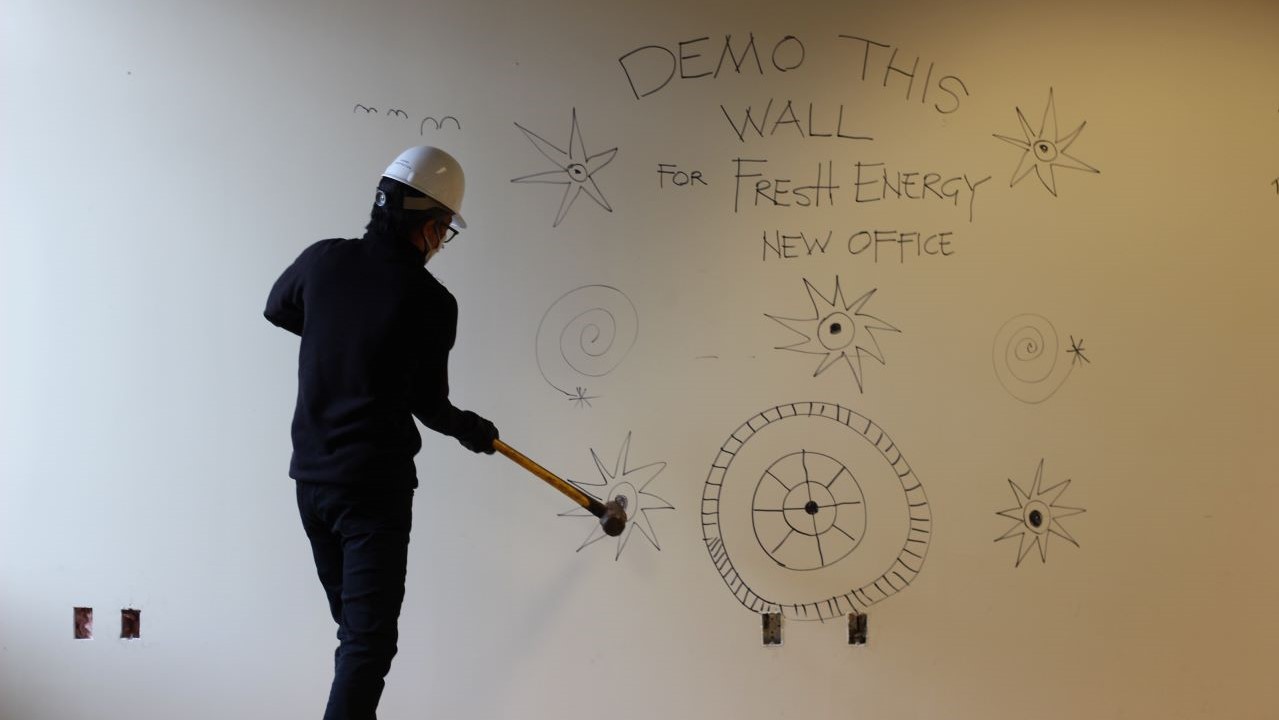
But to Mat and Liz as well as to Steve, who joined Fresh Energy in fall 2021, the whole process further emphasized the importance of relationships—between staff, staff and vendors, and even vendors and other vendors. “The office renovation definitely demonstrated the importance of being in constant communication with each other,” Mat says. That willingness to evolve and communicate openly with one another prompted necessary changes to operating norms at Fresh Energy in consultation with staff, based on staff needs. Liz says that response was only possible because “We already had a foundation of treating people as people, and work as work. And there was a collective understanding that things change, and instead of that being a bad thing, let’s look at what we can learn from it.” Annie, who joined Fresh Energy in 2023, has continued that evolution by overseeing office operations in the new office space and helping staff navigate working in a hybrid environment as well.
Collaboration continues to be a key piece of the Fresh Energy puzzle, both for the Organizational Health team and all staff members. That includes choosing to see our physical office space in the Hamm Building as only “one part of our day-to-day journeys and less as the singular destination,” Mat says. “It’s a community space for Fresh Energy staff and stakeholders to utilize for collaboration and for individual work.”
Moving forward, the Organizational Health team is ready to continue breaking barriers, changing narratives, and setting an example for other nonprofits. In Liz’s words: “As an organization that is looking toward the future of our planet, our climate, our policies … we talk the talk, which means we also need to walk the walk. We need to be innovative with how we approach ourselves as an organization and continue to be open to changing with things that arise in the world around us. In that way, we can be part of the forefront of change and serve as an example for other organizations to think of people as people and not another cog in a machine.”
Choosing to elevate a culture based on people, innovation, co-creation, equity, and inclusion is what enables Fresh Energy to lead the way in creating an energy future that works for all.
Check out our short video to learn how meaningful, clean energy policies can move the needle on climate change. Stay in the loop on clean energy and climate issues impacting Minnesota and the Midwest. Sign up for our monthly e-newsletter, Powering Progress, to get the latest from Fresh Energy about energy and climate policy, upcoming events, and ways to take action.
If you’re a social media user, you can plug in with Fresh Energy on Twitter, Facebook, Instagram, and LinkedIn. You can also tune in to Decarbonize: The Clean Energy Podcast on your favorite podcasting app and get the latest and greatest Fresh Energy news on our blog.

